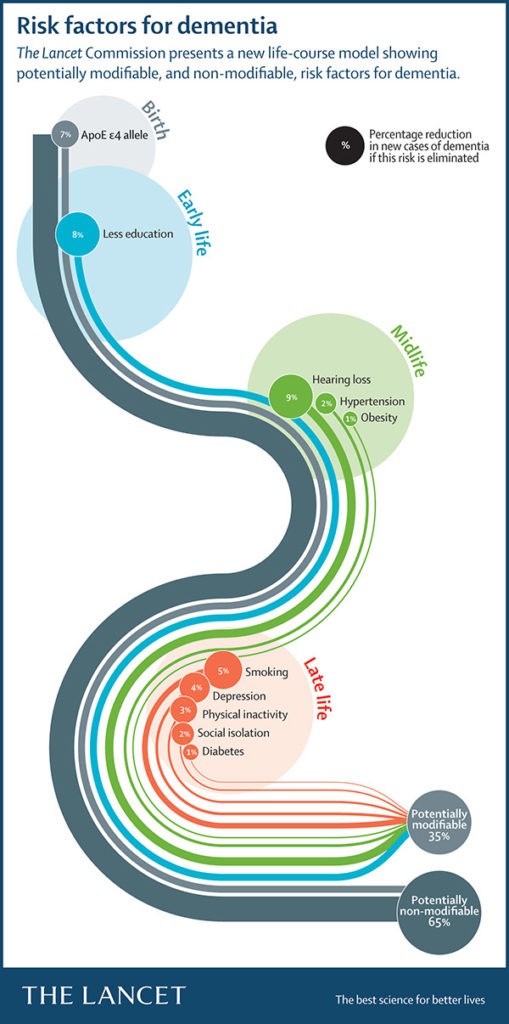Posts Tagged ‘hypertension’
Update: 35% of worldwide dementia cases could be prevented by modifying these 9 modifiable risk factors
Time for SharpBrains’ July e‑newsletter, featuring fascinating scientific findings, emerging brain health practices and insights…and some fun teasers. New research Let’s start with the key take-aways from a new and very insightful evidence review which found nine modifiable risk factors for dementia — accounting for 35% of all cases: — Education by age 15 (during early life) —…
Read MoreReport: 35% of worldwide dementia cases could be prevented by modifying these 9 modifiable risk factors
The Lancet Commission: One Third of Dementia May Be Preventable (Lancet report release): “Today’s findings are extremely hopeful,” said Maria Carrillo, PhD, chief science officer at the Alzheimer’s Association. “At an individual level, many people have the potential to reduce their risk of cognitive decline, and perhaps dementia, through simple, healthful behavior changes. At a…
Read MoreCognitive Training or Gingko Biloba to prevent cognitive decline and dementia? New comprehensive report by the National Academies of Sciences, Engineering, and Medicine clarifies priorities for public health and for future research
Evidence Supporting Three Interventions That Might Slow Cognitive Decline and the Onset of Dementia Is Encouraging but Insufficient to Justify a Public Health Campaign Focused on Their Adoption (National Academies of Sciences, Engineering, and Medicine): “Cognitive training, blood pressure management for people with hypertension, and increased physical activity all show modest but inconclusive evidence that…
Read MoreAlzheimer’s Disease: New Survey and Research Study on Awareness, Testing and Prevention
Very interesting new data reinforcing two main themes we have been analyzing for a while: 1) We better start paying serious attention (and R&D dollars) to lifestyle-based and non-invasive cognitive and emotional health interventions, which are mostly ignored in favor of invasive, drug-based options 2) Interventions will need to be personalized. The study below analyzes data…
Read MoreShall we question the brand new book of human troubles
With three years still left until publication, the fights over the new version of the psychiatric diagnostic manual, the DSM‑V, are hotting up and The New York Times has a concise article that covers most of the main point of contention. — “What you have in the end, Mr. Shorter said, “is this process of…
Read More


